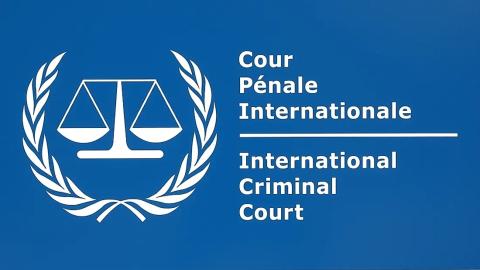Via OTP Link
To
Mr. Karim Khan,
Chief Prosecutor
International Criminal Court
September 7, 2024
Subject: Request for the prosecution of Sheikh Hasina at the ICC
Dear Mr. Karim Khan,
The Coalition for Human Rights & Democracy in Bangladesh (CHRD Bangladesh) is a human rights organization registered and based in the United States. Since 2021, we have been working tirelessly in the pursuit of democracy, human rights, the establishment of a state without corruption and election integrity in Bangladesh.
We are writing to you to bring to your attention the urgent need to prosecute Sheikh Hasina, the former Prime Minister of Bangladesh, at the International Criminal Court (ICC). Below is a summary of the arguments for this case:
Allegations of Crimes Against Humanity: Under Sheikh Hasina’s leadership, there have been numerous allegations of serious human rights violations, including at least 708 forced disappearances [1], extrajudicial killings, and the violent suppression of protests. During her tenure, there has been at least 3 separate mass murders with state backing. They are briefed below:
The Pilkhana Tragedy and Its Aftermath: On February 25-26, 2009, soldiers of the Bangladesh Rifles (BDR) mutinied at Pilkhana, Dhaka. This tragic event resulted in the deaths of 74 individuals, including 57 unarmed Army officers who were attending a meeting. There is widespread speculation that the ruling party at the time, the Bangladesh Awami League (BAL) led by Sheikh Hasina, played a direct role in instigating the revolt.
Following the mutiny, a controversial judicial process ensued. At least 47 individuals died in judicial custody [2], with several others perishing under suspicious circumstances, including alleged suicides. Additionally, at least four Army officers died under mysterious conditions shortly after the Pilkhana tragedy. These events suggest the involvement of high-level officials and underscore the need for an impartial investigation and judgment in a court of law.
The Shapla Chattar Massacre: On May 5-6, 2013, the religious group Hefazat-e-Islam held a sit-in making a 13 point demand at Shapla Chattar in Dhaka. In response, the government used excessive force to disperse the protesters, resulting in at least 58 deaths [3], with most estimates suggesting the actual number could be around 300. Following the incident, the government headed by Sheikh Hasina targeted journalists and human rights organizations that attempted to report on the events of that day.
The Violent Suppression of July The Revolution: In July 2024, massive protests erupted after the Supreme Court reinstated the pre-2018 quota system for government jobs. This decision sparked widespread outrage among students and job seekers who demanded a merit-based system.
The government’s response was severe, involving violent crackdowns on protesters. A preliminary UN report indicates that at least 400 people died between July 15 and August 4 [4], with the actual number expected to exceed 1,000. There is substantial evidence suggesting that these actions were carried out under direct orders from Sheikh Hasina to suppress the protests. A UN team will soon be deployed to Bangladesh to investigate further.
These are only a subset of the crimes committed by Sheikh Hasina and her regime, with the overall destruction being significantly higher.
International Pressure and Legal Precedents: The international community has increasingly scrutinized Sheikh Hasina’s administration for its harsh policies. The UN has will soon send a team to investigate these matters. Prosecuting her would set a precedent that public officials are accountable for their actions.
Ensuring Justice for the Victims: A trial would provide a platform for the victims of Sheikh Hasina’s regime to seek justice. It would ensure that their voices are heard, and their suffering acknowledged.
Why a Trial at the ICC:
International Cooperation: Although India, where she is currently residing, is not a signatory to the Rome Statute, international diplomatic pressure could facilitate cooperation for extradition, which would be difficult to achieve via a local trial. Even if the ICC’s extradition request falls short, Bangladesh could request extradition under the current treaty with India, considering the ICC judgment.
Judicial Credibility: A trial at the ICC would enhance the credibility and impartiality of the judicial process, given concerns about the independence of Bangladesh’s judiciary. This would also help counter the exception clause in the extradition treaty with India regarding political cases.
Admissibility Based on Article 17 of the Rome Statute: According to Article 17 of the Rome Statute, a case is admissible if the state with jurisdiction is unwilling or unable to genuinely carry out the investigation or prosecution. Given the political influence and potential biases within Bangladesh’s judicial system, it is unlikely that a fair and impartial trial could be conducted domestically. The ICC, therefore, provides a necessary and impartial forum for this case.
Thank you for your attention to this matter.
Sincerely,
Zoglul Husain
President CHRD Bangladesh
&
Sabria Chowdhury Balland
Vice President & Secretary CHRD Bangladesh
References:
1. Bangladesh: Government Sets up Disappearances Inquiry | Human Rights Watch (hrw.org)
2. “The Fear Never Leaves Me”: Torture, Custodial Deaths, and Unfair Trials after the 2009 Mutiny of the Bangladesh Rifles | HRW
3. Blood on the Streets: The Use of Excessive Force During Bangladesh Protests | HRW
4. Preliminary Analysis of Recent Protests and Unrest in Bangladesh


